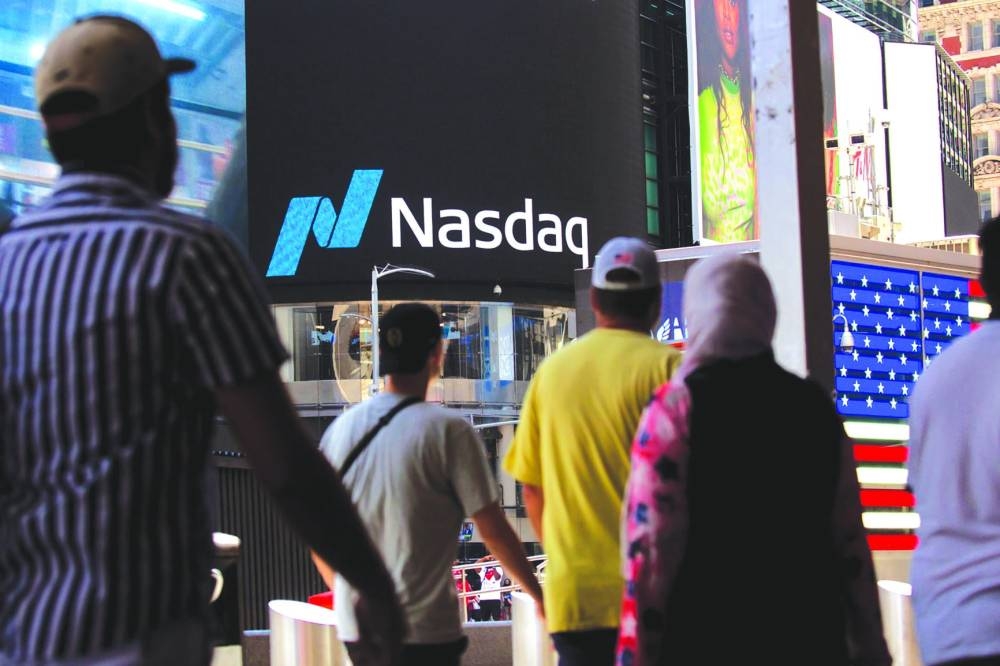Relieved to have turned the page on the worst year for stocks in more than a decade, investors are finding that pricey share valuations and shrinking earnings still stand in the way of any swift bounceback for Big Tech.
While price-earnings multiples have come down from their peaks during the pandemic, many of the market’s biggest names continue to look expensive.
At the same time, the profit outlook is weakening and the economy could be headed toward a recession as the Federal Reserve aggressively raises interest rates to combat inflation.
There are also risks to key businesses, such as supply constraints for Apple Inc.’s iPhone or weakness in online advertising for Alphabet Inc and Meta Platforms Inc. A slowdown in business spending could mean weaker trends for cloud computing, a key driver at Amazon.com Inc and a risk UBS Group AG warned about in downgrading Microsoft Corp.
The confluence of a weak backdrop and shaky fundamentals suggests corporate earnings, the primary driver of stock prices, could disappoint. Last week, profits at tech bellwether Samsung Electronics Co dropped by the most in more than a decade.
“The fundamentals of these companies are not improving, and at the margin they’re deteriorating,” said Nicholas Colas, co-founder of DataTrek Research, referring to Big Tech.
“For growth stocks to work, you want to see improving fundamentals and estimates, and we’re not seeing that right now, which makes it hard to argue for multiple expansion.”
The tech-heavy Nasdaq 100 fell 33% last year, its biggest annual drop since 2008. While it is up less than 1% in 2023, Apple, Microsoft, and Alphabet all remain in negative territory.
A key test will arrive in coming weeks, as companies release results for the fourth quarter. Investors are concerned the reports and outlooks could underline how the backdrop is weighing on demand, a factor that has contributed to widespread layoffs at companies like Amazon, Meta, and Salesforce Inc.
Wall Street expects tech-sector earnings to fall 2.2% this year, compared with growth of 2% for the S&P 500, according to Bloomberg Intelligence data.
The consensus has dropped dramatically over the past few months — at the end of September, tech earnings had been forecast to rise 4.7% in 2023 — and many expect analysts will cut their estimates further. If they do, that would make stocks appear pricier by lowering the denominator in the price-earnings ratio, potentially leading to more selling pressure.
The S&P 500 tech sector still trades at 20.1 times estimated earnings, above its 10-year average of 18.9, as well as the 17 multiple of the S&P 500 overall.
Apple remains above its long-term average, while Microsoft is only slightly under its own. The two account for about 11% of the overall weight of the S&P, and of the four biggest megacaps, Alphabet is the only one to trade at a discount to the overall market. Patrick Burton, a portfolio manager at Winslow Capital Management, said the market hadn’t yet priced in an earnings recession, something he is confident will happen this year.
“In this environment, investors are going to be less forgiving of unprofitability, of slowing growth, and of weak earnings or guidances,” he said. “Big tech has been successful for so long, but if you have a widely owned stock that is seeing decelerating growth, that’s a problem. Valuations are such that that any bad news will be met with a selloff.”

Pedestrians in front of the Nasdaq MarketSite in New York. The tech-heavy Nasdaq 100 fell 33% last year, its biggest annual drop since 2008. While it is up less than 1% in 2023, Apple, Microsoft, and Alphabet all remain in negative territory.
